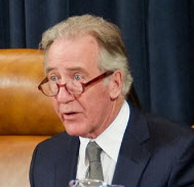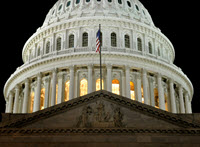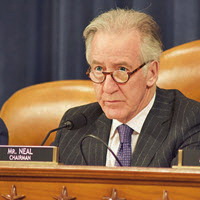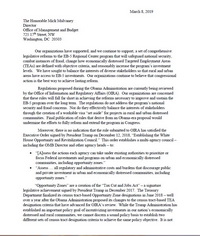The House Ways and Means Committee this week signaled its upcoming tax policy priorities after holding a hearing on the 2017 Tax Cuts and Jobs Act (“TCJA”) entitled “The 2017 Tax Law and Who It Left Behind.” The March 27th hearing was the first one focused on the TCJA since Democrats took control of the House, with policymakers examining which provisions they plan to reverse or refine.
 |
|
House Ways and Means Committee Chairman Richard Neal (D-MA) signaled the committee’s upcoming tax policy priorities . |
- Ways and Means Chairman Richard Neal (D-MA) on Wednesday also announced the committee will hold its first legislative mark-up next week on bills to encourage retirement savings (H.R. 1007) and bipartisan IRS reform. “Our plan here is to move legislation and we’re going to start doing that next week,” Neal said. He indicated that bills addressing other tax issues, including a tax extender package, must first be negotiated with Senate Finance Chairman Charles Grassley (R-IA). (BGov and CQ, March 27)
- A future Ways and Means mark-up may also address “technical corrections” to the TCJA. On March 26, House Ways and Means Committee members Jimmy Panetta (D-CA) and Jackie Walorski (R-IN) introduced the Restoring Investment in Improvements Act.
The House bill (H.R. 1869) would correct a TCJA mistake that inadvertently lengthened the cost recovery period for qualified improvement property (QIP). A companion bill in the Senate (S. 803) was introduced earlier this month by Sens. Pat Toomey (R-PA) and Doug Jones (D-AL). (Roundtable Weekly, March 15). The Roundtable strongly supports the legislation.
Comment Letters – Carried Interest and FIRPTA Repeal
The Roundtable and 13 other national real estate organizations sent a letter this week to members of the House Ways and Means Committee about the adverse impact that recently introduced carried interest legislation (H.R. 1735) would have on U.S. real estate and entrepreneurial risk taking.
- The letter notes how the bill would result in a huge tax increase on Americans who use partnerships in businesses of all types and sizes – and would be particularly harmful to the nearly 8 million partners in U.S. real estate partnerships.

The Roundtable and 13 other national real estate organizations submitted comments about recently introduced carried interest legislation (H.R. 1735).
- The March 26 letter states, “The false narrative surrounding the carried interest issue is that it targets only a handful of hedge fund billionaires and Wall Street executives. The carried interest legislation is far broader and would apply to real estate partnerships of all sizes—from two friends owning and leasing a townhome to a large private real estate fund with institutional investors.”
- Additionally, The Roundtable and 19 national trade organizations – representing every aspect of constructing, developing, financing, owning, and managing real estate and infrastructure in the United States – wrote to Ways and Means Committee Members and other key House lawmakers on March 28, urging them to support the Invest in America Act.
- The legislation would repeal the arcane and punitive Foreign Investment in Real Property Tax Act (FIRPTA) of 1980. FIRPTA imposes a discriminatory layer of capital gains tax on foreign investment—a tax burden that does not apply to any other asset class. Private investors cite FIRPTA as a principal obstacle to attracting greater foreign capital for infrastructure projects. (Roundtable FIRPTA Letter, March 28)
- Reps. John Larson (D-CT) and Kenny Marchant (R-TX) are expected to introduce the bipartisan legislation soon.
Repealing FIRPTA is a key policy action Congress could take to help spur infrastructure improvements and contribute to economic growth, according to recommendations submitted March 20 by The Real Estate Roundtable to the House Ways and Means Committee. (Roundtable Statement for the Record)








